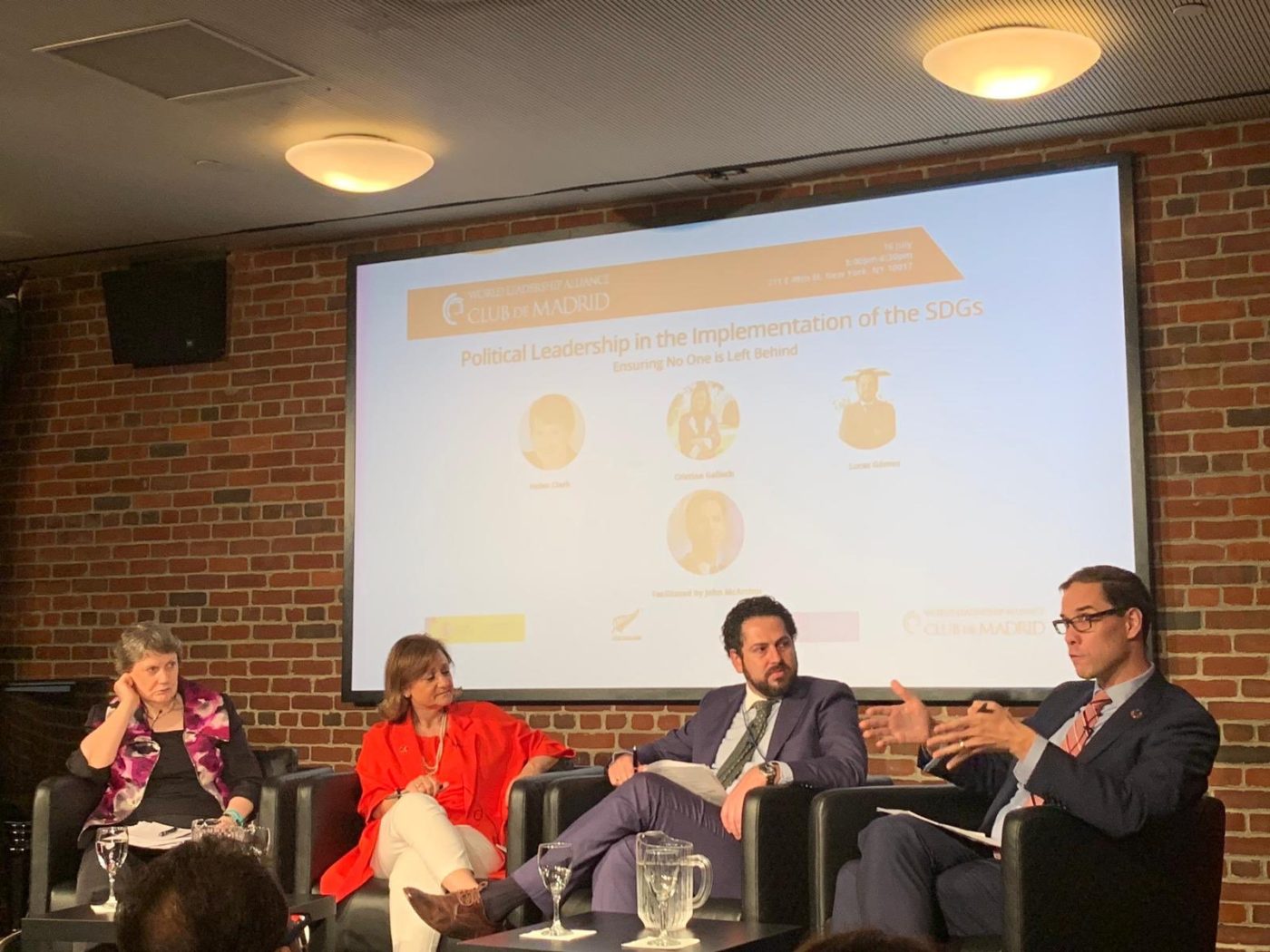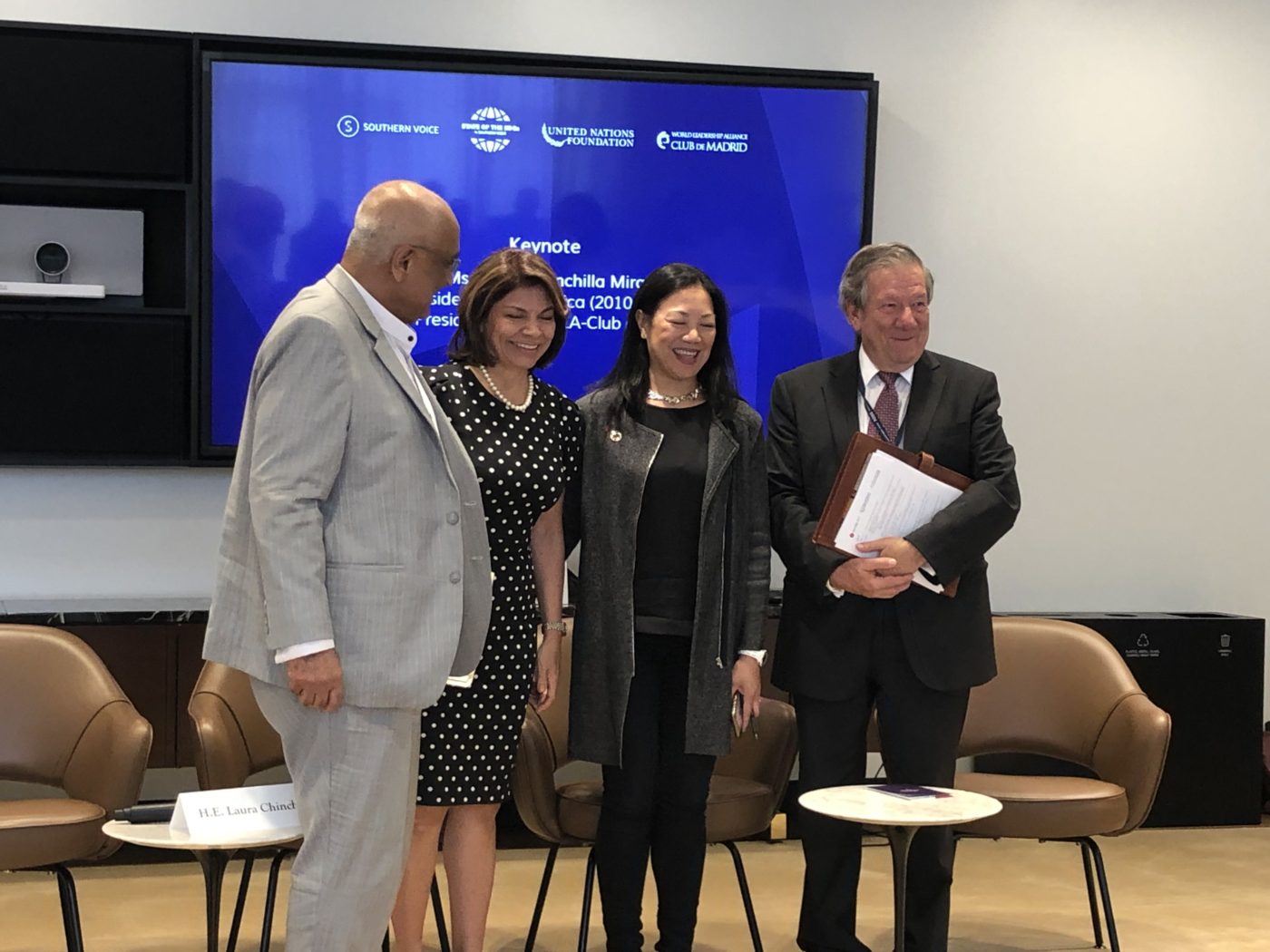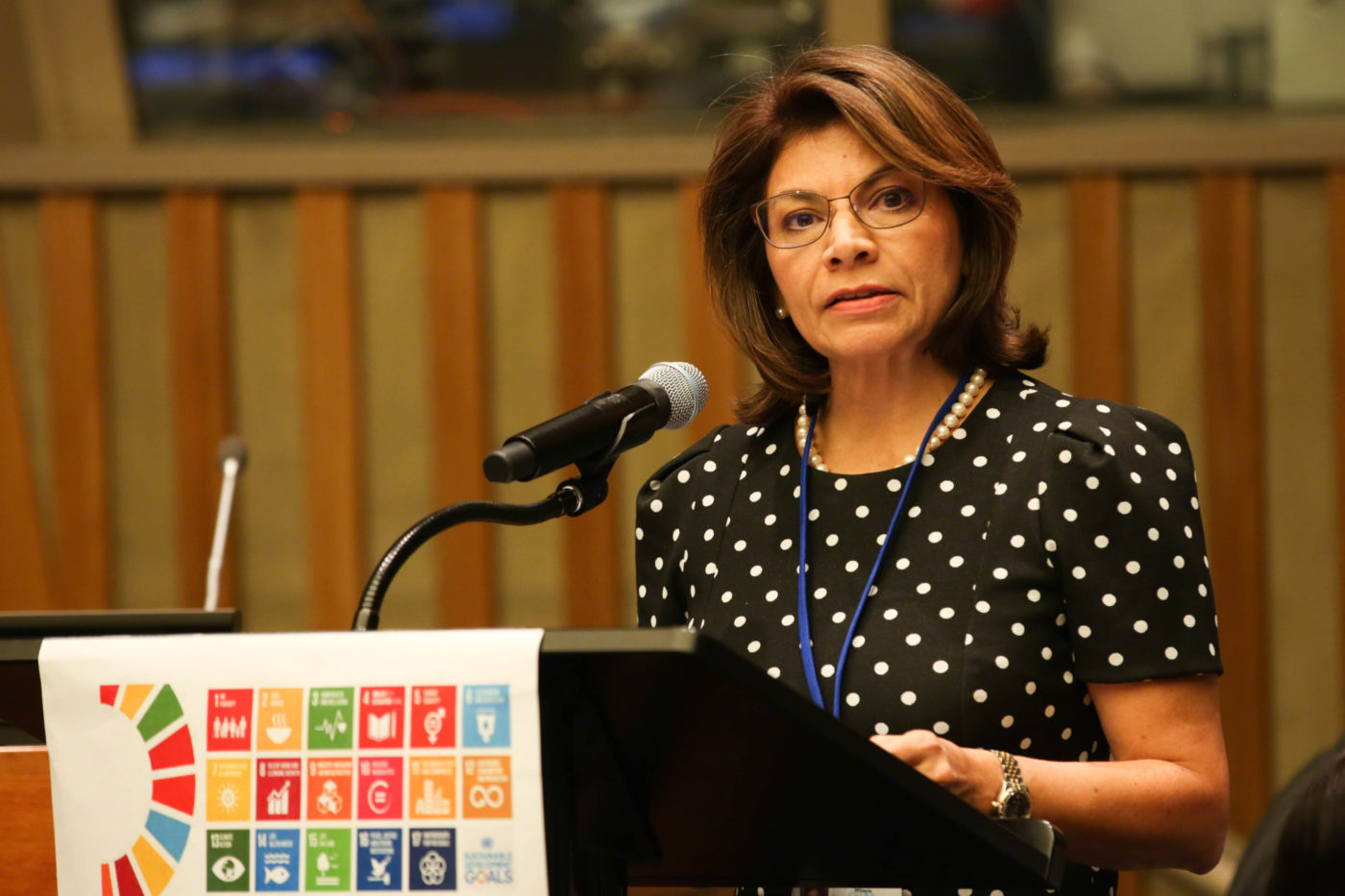The Sustainable Development Goals (SDGs) were agreed upon by UN Member States, but these are not the only key players in their implementation. Increasing the speed of such implementation, widely regarded as a necessity in this year’s High-Level Political Forum on Sustainable Development, will require the involvement of different levels of government, the participation of civil society and establishing partnerships with the private sector, among other stakeholders.
World Leadership Alliance – Club de Madrid (WLA-CdM) organized the side-event ‘Political Leadership in the Implementation of the SDGs: Ensuring No One Left Behind’ on 16 July in co-sponsorship with Governments of Spain, New Zealand and Colombia, that addressed the considerations above.
Participants at the side-event highlighted a series of recommendations that WLA-CdM Members, States and other actors could incorporate in their Agenda2030 implementation plan and advance efforts to “leave no one behind”.

Helen Clark, former PM of New Zealand and Member of WLA-CdM, argued that civil society has an important role in mobilizing governments and other stakeholders, a point which was also made by Cristina Gallach, Spain’s High Commissioner for Agenda 2030, also a speaker at the event.
Lucas Gómez, Colombia’s Director of Agenda 2030 Commission, elaborated on the importance of incorporating the SDGs in local development plans. Gómez and Clark agreed in the need to adapt the language of the SDGs to that of the local level, thus facilitating their adoption by local policymakers.
Both Gómez and Clark also addressed the importance of having a whole-of-government approach to sustainable development, creating coherent plans among Ministries and other public administrations.
Gallach referenced the importance of having national budgets that are aligned with Agenda2030 and specifically mentioned the efforts made by her office so that the Spanish Government could produce such a budget.
Agenda2030 is not only relevant to developing economies, as no country is on track to achieving all SDGs. For this reason, Helen Clark highlighted the role of the OECD in getting developed countries to pay greater attention to the goals. For example, sustainable development will impact employments in certain industries so, parallel to Agenda2030, we must also guarantee a ‘just transition’ that protects the jobs that might be affected and creates better employment policies for new ones.
The event mas moderated by John Mc Arthur, from Brookings Institution and held at New York’s Cervantes Institute.
Three suggestions for a more inclusive implementation of the SDGs
Vice-President of WLA-CdM and former President of Costa Rica, Laura Chinchilla, gave the keynote speech at the side-event Global Report on the State of the SDGs, organized on 12 July by Southern Voice, a network of 50 think tanks in Africa, Latin America and Asia. The network, which organized this side event with the United Nations Foundation and WLA-CdM, focuses on fostering Agenda 2030 implementation in the Global South.

“Progress on the SDGs will come from working with the people, and not just for the people”, said Laura Chinchilla in the keynote speech.
The former President of Costa Rica highlighted the unparalleled opportunity that the SDGs represent to achieve social progress and Shared Societies. Chinchilla then provided three suggestions to achieve a more inclusive implementation of the SDGs, which we reproduce below:
—Participation: Most states and some development organisations seem to be continuing with a top down approach to the delivery of services in pursuit of the SDGs. Governments are focusing their energy on creating institutional frameworks in order to provide services for the people. Laudable as that is, the Shared Societies Concept shows that this is not sufficient. All stakeholders need to be involved in identifying the gaps that need to be filled and developing approaches that will fill those gaps. They know best the challenges facing their communities.
—Transparency: As is generally recognised, it is difficult to achieve effective participation without appropriate knowledge and information. Therefore, transparency is important. It is also important in relation to the National Voluntary Review Process.
—Paradigm shift: Agenda 2030 both requires and advocates for a paradigm shift if we are to ensure that no one is left behind and we realise the future we want for all. Our present systems at the national and global level are not able to meet the requirements of Agenda 2030. This shift requires a new balance on multilateralism and a new balance on the North-South engagement.
You can read the full keynote speech at Southern Voice’s website.
SDG16 as the moral backbone of Agenda 2030
One of the official sessions of the High-Level Political Forum on Sustainable Development, held on 12 July, went into the nitty-gritty of SDG 16, on Peace Justice and Strong Institutions. Speakers and Members reviewed the implementations of this goal, a crucial one, given its power to provide justice for all, build effective, accountable and inclusive institutions at all levels. Laura Chinchilla gave a keynote speech for the session.

“SDG 16 is the moral backbone of the 2030 Agenda since it recognizes and advances the equal standing of every person in shaping the society they want to share with others”, noted Chinchilla.
You can watch her full speech at the video below
The former President of Costa Rica also emphasized the importance of bringing more children, young people and women into processes of policy-making, which she regards as crucial to reduce violence, ensure inclusive participation and promote nondiscriminatory law and policy.
